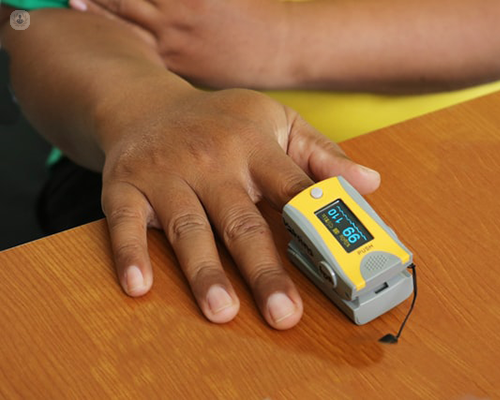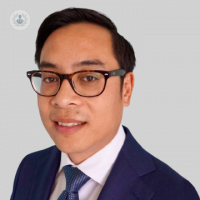How serious is supraventricular tachycardia?
Written by:Receiving a diagnosis of a heart condition such as supraventricular tachycardia can understandably leave patients concerned and confused about how their daily life will be affected. In this illuminating and informative article, leading consultant cardiologist and cardiac electrophysiologist Dr Anthony Li sheds light on how supraventricular tachycardia affects the heart and offers reassurance about the advanced treatment options available to patients.

What is supraventricular tachycardia?
Supraventricular tachycardia (SVT) is the name given to several heart rhythm problems that share common features in their circuits and also their treatments.
What are the different types of supraventricular tachycardia?
Of the SVTs, the most common type that we see is one with a circuit located in and around the junction box in the heart, called the atrioventricular or AV node. This type of SVT is called AVNRT: atrioventricular nodal re-entry tachycardia.
Another common type of SVT is one that involves an extra wire in the heart which we refer to as an accessory pathway. This is a condition that is present from birth but can remain undetected and may not cause any symptoms, or not until later in a person’s life. It is often found by chance on an electrocardiogram (ECG) which traces the heart, when performed for another reason or as part of a health screening. Not all accessory pathways can be seen on an ECG, however, but when it is detected, it is often referred to as Wolf Parkinson White syndrome.
Accessory pathways can potentially form an abnormal circuit in the heart which, when triggered, can cause the heart to beat extremely rapidly. In rare instances, people with a specific type of accessory pathway who go on to develop additional heart rhythm problems such as atrial fibrillation (AF). This can transmit down the pathway and cause the heart to beat uncontrollably fast which can lead to life threatening rhythm problems.
What are the symptoms and triggers of supraventricular tachycardia?
The most common symptom of SVT is palpitations; a sensation that the heart is beating very rapidly and out of its normal rhythm. Occasionally a patient may also experience breathlessness, dizzy spells or even blackouts with the palpitations and they are sometimes mistaken for panic attacks.
Palpitations from SVT can occur with exercise or during periods of stress. Alcohol and caffeine are also known to make SVT more likely to start but sometimes there isn't an obvious trigger. The palpitations caused by an SVT start instantaneously and also tend to stop abruptly. Patients often find that doing certain manoeuvres, such as coughing or holding their breath can stop their palpitations.
Is supraventricular tachycardia dangerous?
Thankfully most SVTs do not lead to serious consequences and can be treated by medications and/or a procedure called an electrophysiology study with catheter ablation. This has high success rates with a long-term cure possible in most.
When should you see a doctor about supraventricular tachycardia?
You should consult a doctor if you have persistent palpitations that are concerning you. On the whole, SVT in adults is recurrent and so it is important that help is sought so that a diagnosis and management plan can be discussed.
If you are concerned by heart palpitations and wish to book a consultation with Dr Li, don’t hesitate to visit his Top Doctors profile.


